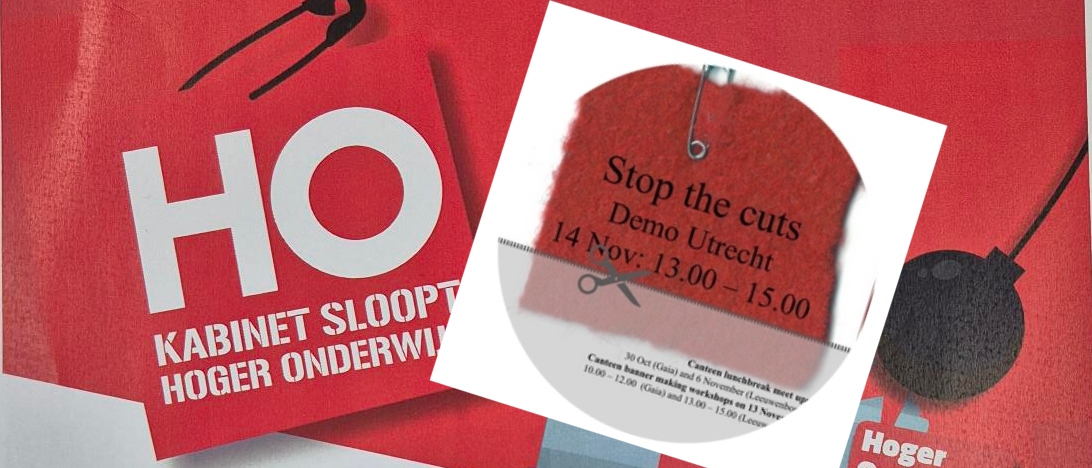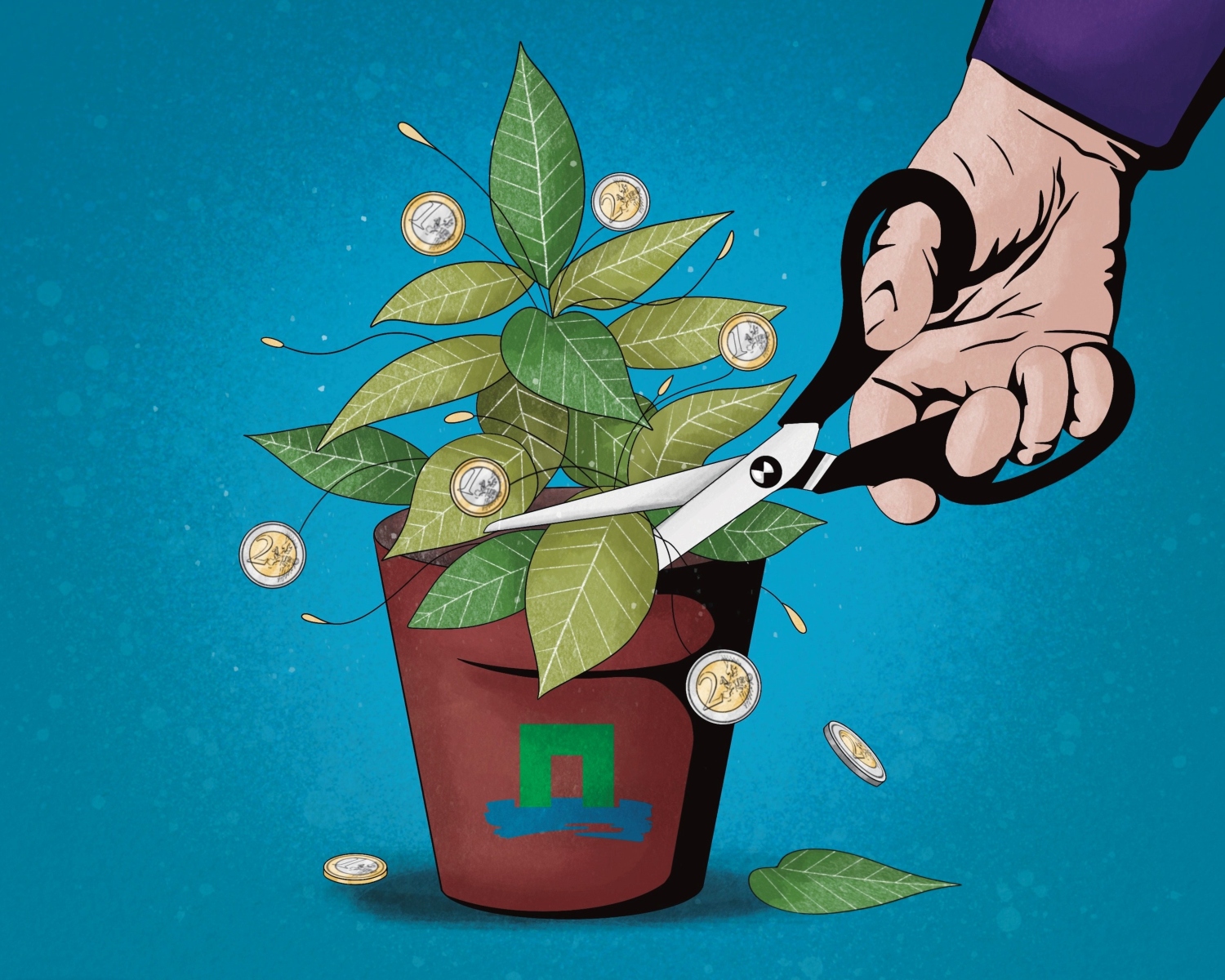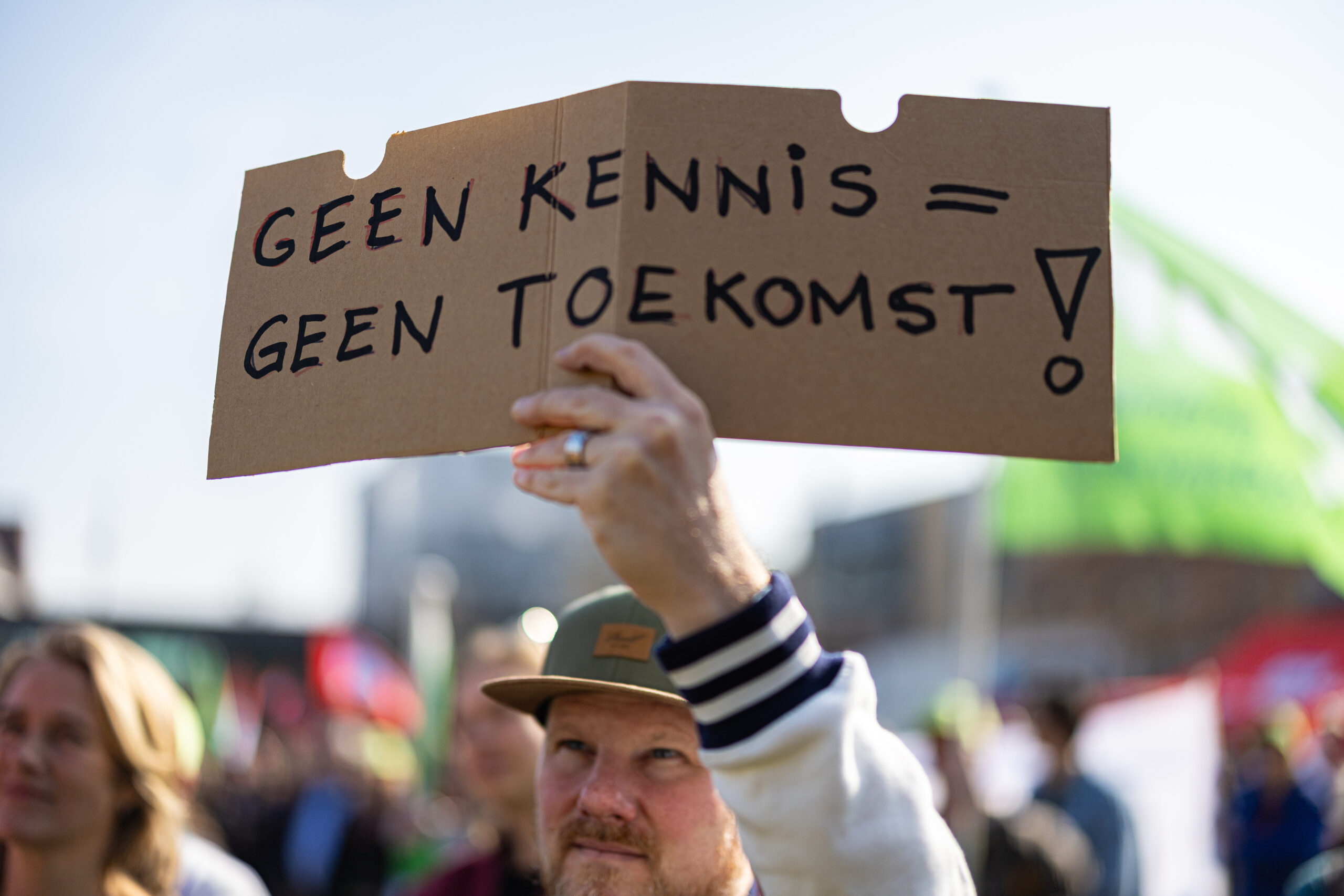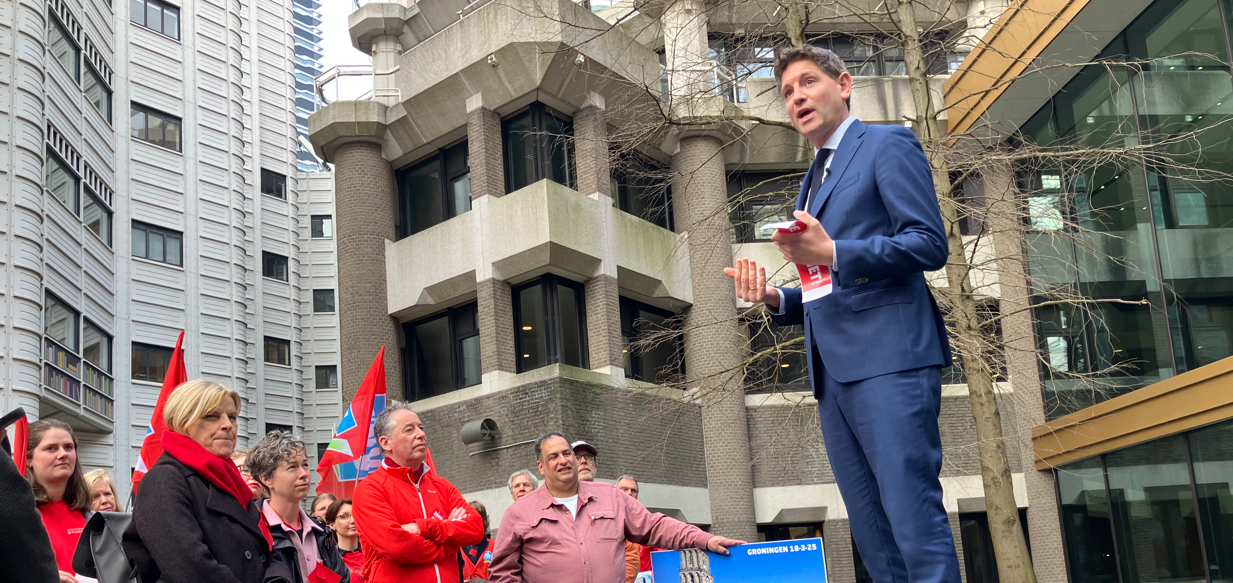University lecturers Michiel Köhne and Zoë Robaey (both from the Social Sciences Group) notice a slowly growing little enthusiasm from Wageningen for the demonstration against budget cuts in higher education, scheduled for next Thursday in Utrecht.
The new cabinet recently announced substantial cuts in higher education and research funding. As a result, groups of staff and students will take to the streets next Thursday, also from Wageningen. Köhne (Sociology of Development and Change) and Robaey (Philosophy) want to lower barriers and invite students and staff to join. Robaey emphasizes, ‘This is the moment for solidarity.’
Future prospects
Robaey thinks that there is still little awareness in Wageningen of the need to protect our sector. Köhne can understand this perspective. ‘We don’t yet know what these cuts will mean for WUR. However, we are already seeing effects here. Just this morning, we spoke with someone whose contract won’t be renewed due to the cuts. She is likely one of the first casualties.’
The cuts seem to primarily affect young people. ‘Students graduating now face much fewer perspective’, Robaey explains. ‘We’re training young people to be scientists, but if there are no jobs for them, what are we doing this for? And for those who do get a job, it’s much harder to secure a permanent contract. It’s a bleak future for them.’ Köhne agrees on the importance of continuity in research and education. ‘Even if you aren’t directly affected, it’s important to make yourself heard now. This shows solidarity with other universities.’
Opinions, no demonstration
Robaey and Köhne did not know each other until a few weeks ago but were brought into contact through the national organization of the demonstration. They both want to increase WUR’s willingness to take action. Robaey says: ‘Our students have strong political opinions, but staff and managers much less so, or they rarely express them. People need to realize they have the right to stand up for themselves and their colleagues.’
According to Köhne, scientists often feel obligated to remain neutral. ‘But it’s a misconception to think you can leave your political views at home when you come to work. Our research is, in a sense, always connected to politics. People shouldn’t be scared of doing anything that relates do demonstrations or activism. Fortunately, the Board of Directors announced that there will be no negative consequences for participants in the protest.’
Joining forces
Köhne and Robaey have personal experience with demonstrations and acknowledge that it can be intimidating. ‘That’s why we want to go together. We’ve created a WhatsApp channel to share information and bring people together. Ultimately, everyone has to decide for themselves how they want to contribute – even if it’s just by wearing a felt, red square, the global symbol for activism in education and research – or by discussing it at the coffee machine.’
They try to keep it fun and accessible. ‘We’ve made a PowerPoint slide that lecturers can use to inform their students. Next week, we’ll organize two opportunities for people to make protest signs. Demonstrations are often fun because you meet people who care about the same things,’ says Robaey.
Student protest?
The student council will be present during the protest next week, says chair Hanna Elsinga. ‘How many WUR-students are planning to go, is hard to say. Students are concerned about the topic. The budget cuts will affect the university and the long-study fine has a big impact on student life. In my personal environment, people are enthusiastic about going to the protest, but we don’t know how many students will actually attend the protest. We are encouraging students to join.’
The council does that by promoting the protest on social media, says council member Kingdavid Ozobodo. ‘And also through personal contacts.’ Fellow council member Reni Nanaj adds: ‘As a student, you have to take a role in shaping your own future. The more students show up for the protest, the bigger the impact.’




